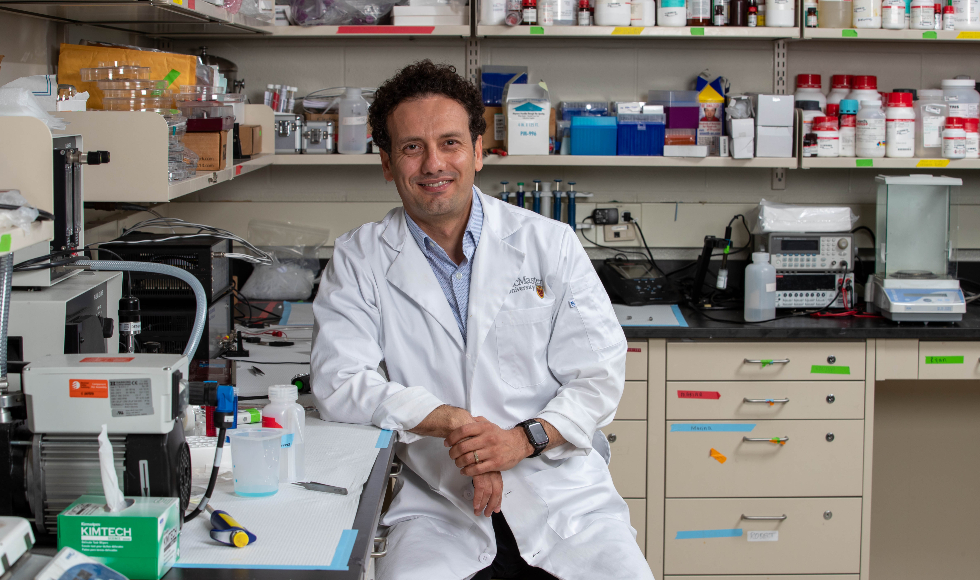Grant accelerates McMaster University, SQI Diagnostics effort to move infection testing innovation from lab to market

A new grant is helping McMaster engineers and a Toronto precision-medicine diagnostics company to get infection-testing technology to market while generating opportunities for students.
BY Wade Hemsworth
April 13, 2021
A new grant is helping McMaster engineers and a Toronto precision-medicine diagnostics company to get infection-testing technology to market while generating opportunities for students.
Last year, a research group led by Tohid Didar of McMaster’s Faculty of Engineering, working with industry researchers from SQI Diagnostics Inc., developed and successfully tested a new material to help detect critical but elusive markers of illness.
Designed as a coating for the lining of test tubes and other surfaces, the smart surface innovation improves the ability of diagnostics sensors to detect and measure the presence of cytokines, proteins the body produces as part of its immune response, permitting more accurate measurement of infections, including COVID, and cancer.
“This technology could be very useful in future pandemics, allowing researchers and clinicians to detect and identify cytokines faster and at lower cost,” Didar says. “Having the chance to save lives would be so gratifying.”
Measuring the microscopic markers in complex fluids such as blood had been a challenge until the team was able to isolate them using a surface that repels all other materials except cytokines. Measuring their presence makes it easier to understand how the body is reacting, including overreactions called cytokine “storms”.
Didar and McMaster colleague Leyla Soleymani are working with SQI Diagnostics to scale up the technology for commercial production, after receiving a three-year, $900,000 Collaborative Research and Development grant from the Natural Sciences and Engineering Research Council of Canada.
The new detection method is being added to SQI’s existing technology to make it both more effective and more efficient to produce, with the eventual goal of seeking FDA and Health Canada approval for its clinical use.
Didar and SQI’s Chief Scientific Officer Eric Brouwer say such partnerships allow manufacturers to have access to leading-edge research and development and help new technologies through the often-difficult pathway to the marketplace.
“We are investing in the future,” Brouwer says. “We are a company that makes strategic investments in innovation.”
Working together creates opportunities for researchers – especially graduate students – to apply their skills and discoveries for use in the everyday world and opens the door to internships and other employment opportunities.
Brouwer says research and development across the field is increasingly shifting to university partnerships, which help companies such as SQI to improve their capacity for innovation, allowing them to be more competitive.


